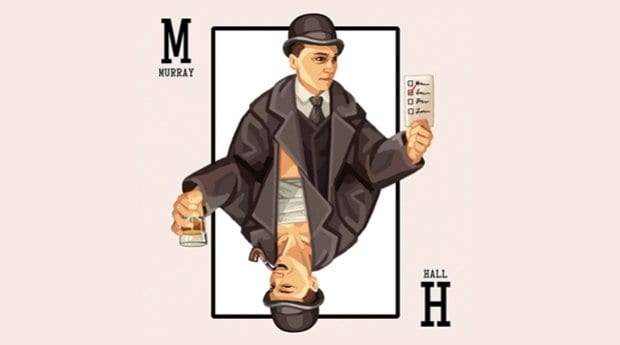During one of my recent visits to the History Boys Archives (past the riddle-posing troll, across the drawbridge and beyond the courtyard full of tied-up slave-boys), I noticed a trend while poring over our columns.
We’ve written about several figures who were assigned female at birth (ie, they were raised female) but later lived as men. An excitable modern queer conscience might say, “Yes, well, clearly they were transgender.” What I find interesting is that that’s not always clear. Sure, some people may have been transgender — if that term even applies to someone living in, say, the 16th century — but in other cases, it seems the person lived as male not out of desire to be (or be read as) male, but as a matter of utility (and may have identified as female in private): you often had to be male if you wanted to vote, do certain jobs, travel, own property — do virtually anything. Whatever the person’s motives, I always call them by whatever pronouns they seemed to prefer.
So, while I don’t know what his motives were, I call Murray Hall “he” and “him.” When such a person was found to be living as a man, what would follow, especially in the United States in the late 19th and early 20th centuries, were sensational headlines. When Hall died, age 70, the headline of a Jan 19, 1901, article in The New York Times read “Murray Hall Fooled Many Shrewd Men,” followed by “How for Years She Masqueraded in Male Attire,” “Had Married Two Women” and “Was a Prominent Tammany Politician and Always Voted — Senator Martin Astonished” (editors liked to bombard readers with lots of weirdly worded sub-headings in those days).
The article, which calls Hall by female pronouns, says that he lived as a man for more than 25 years until the “secret of [his] sex” was discovered when he died the previous Wednesday. Hall, who was a New York City politician, had breast cancer but failed to seek treatment out of fear of being exposed. Then, with death imminent, he saw Dr William Gallagher, who found that the cancer had spread and Hall had only a few days to live. He was married twice (his wives, at least, must have known his secret), and his sole heir was his adopted daughter, Minnie.
The article quotes the reactions of some of Hall’s associates. They’re surprised, but many talk as though they now realize there were telltale signs. C S Pratt, a bookseller, says Hall was “somewhat effeminate in appearance and talked in a falsetto voice.” Senator Bernard Martin says Hall always wore “a coat a size or two too large” and now realizes “that was to conceal his form.” He adds, “His face was always smooth, just as if he had just come from the barber’s.”
Many say flattering things in spite of Hall’s being, as they now think of him, a woman. I think this was, in part, to explain how they’d been, in their minds, duped: he was intelligent and influential — who could possibly have suspected he was a woman? What’s even more offensive — and kind of funny — is that they go on to cite, as further evidence of Murray’s apparent masculinity, these traits: he drank, smoked cigars, was assertive, flirted with women, played poker and once gave a policeman a black eye. Joseph Young, a political colleague, says, “A woman? Why, he’d line up to the bar and take his whisky like any veteran, and didn’t make faces over it, either. If he was a woman he ought to have been born a man, for he lived and looked like one.”
The author says it’s a mystery how Hall pulled it off, but I say, Was it that hard? It took strength, intelligence and luck to live as Hall did, and I suspect he was up for any challenge, but on many occasions it can’t have been that difficult to fit in with the rest of the guys. Not with the standard for masculine behaviour so low (modern-day standards aren’t much better). I like to imagine him on some poker evening, assessing his cards, sweltering away in his big coat, and chuckling to himself over how all he had to do to fit in was swear, gulp another whiskey and leer at the woman across the room.
History Boys appears twice a month on Daily Xtra


 Why you can trust Xtra
Why you can trust Xtra


